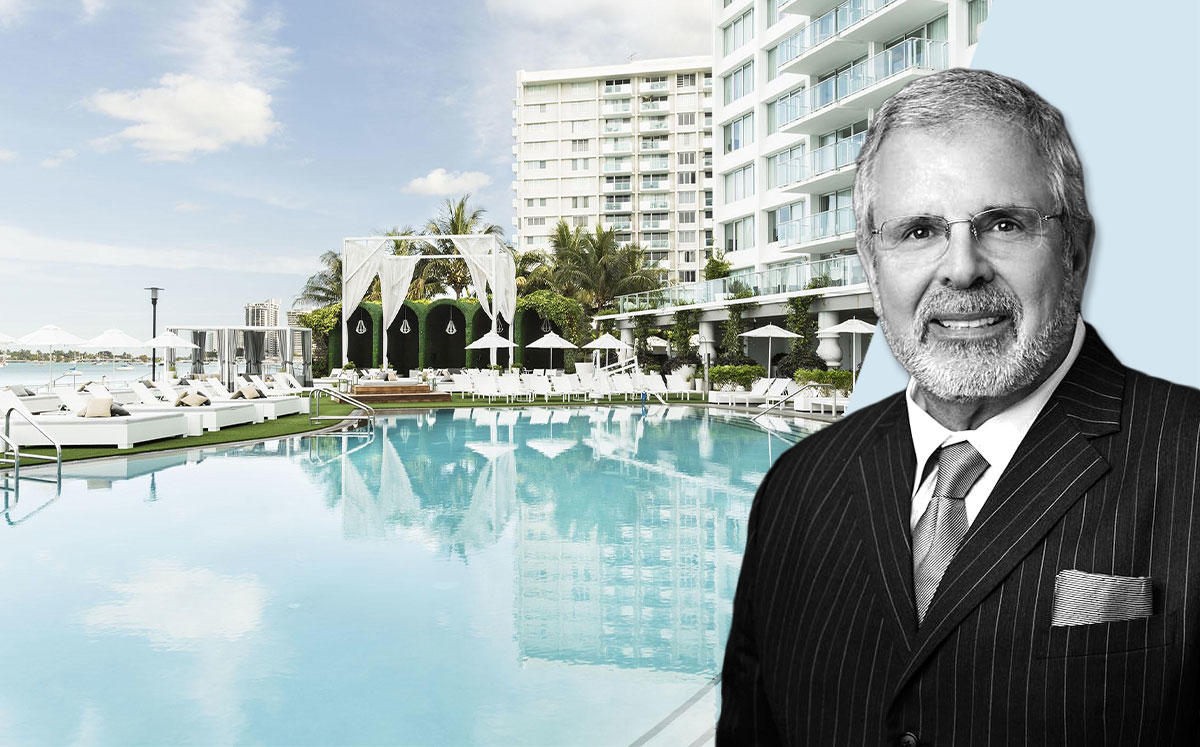A group of unit owners at the Mondrian South Beach sued the condo association and companies tied to developer Russell Galbut, alleging securities fraud.
Fifty-one unit owners are each seeking $600,000, for a total of $30.6 million. They allege that a group of entities raised assessments and special assessments for improvements to the common areas of the condo-hotel. And the market value of their condos allegedly has been driven down to $250,000 or less, at which point companies tied to Galbut could exercise their right to purchase the units.
The unit owners filed suit in Miami-Dade Circuit Court last month, against 1100 West Condominium Association, 1100 West Investments LLC, 1100 West Investment Holdings LLC, 1100 West Properties LLC, 1100 West Realty LLC and Mirador Master Association. The Mondrian declined to comment on the litigation.
The 335-key condo-hotel at 1100 West Avenue in Miami Beach was built in 2008.
The plaintiffs, acting as securities holders, said they invested into the condo-hotel with the expectation that profits would come from the defendant, developer and its third-party management company, by renting out units. By doing so, they gave up a significant amount of control to the developer and its proxies, the lawsuit alleges. Plus, the developer has allegedly refused to hand over control of the condo association, “despite the fact that more than seven years have elapsed since the dedication of the Condominium,” according to the lawsuit. The unit owners are also seeking access to the condo-hotel’s financial records, which they allege they have been denied.
The owners allege the companies are committing illegal acts by allegedly refusing to turn over control of the condo association to the unit owners, by enacting special assessments so that companies tied to Galbut benefit when they sell the units, by retroactively charging assessments, and by using special assessments to improve common areas of the mixed-use condo hotel before selling the units.
The retroactive assessments were charged even after unit owners had been given an estoppel certificate from the association showing that nothing else was due, the suit alleges.
The unit owners claim that the defendants withheld payments on rentals that occurred prior to the pandemic, and denied access to units, allegedly creating a scheme that ultimately benefits the developer, Galbut.
The unit owners footed the bill for the renovation, and the developer and its proxies “benefit by not only receiving the special assessments, but by the increase in value” when they sell the units, the lawsuit alleges.
In December, Galbut’s Crescent Heights sold 50 percent of the units owned at the Mondrian to investor Michael S. Liebowitz.
The lawsuit alleges that the defendants are trying to sell 100 units to a hotel operator for $850,000 or more per unit. The unit owners are seeking $600,000, each, to make up for the difference between their alleged current value and $850,000.
The hotel’s website advertises that it is “undergoing a property-wide multi-million dollar renovation” and plans to reopen Oct. 1.
The lawsuit is similar to litigation at the Shelborne South Beach, a condo hotel previously owned by Galbut and W.P. Carey. Forty unit owners had sued the association and Shelborne entities, as well as four association board members, alleging they violated Florida law when $30 million in assessments were approved to repair and renovate the hotel.
In July, the Third District Court of Appeals denied a petition by two investors to overturn a judge’s 2017 ruling granting summary judgment in favor of Shelborne Ocean Beach Hotel Condominium Association and Shelborne Property Associates and Shelborne Operating Associates, two entities that own a majority of the hotel’s rooms.
